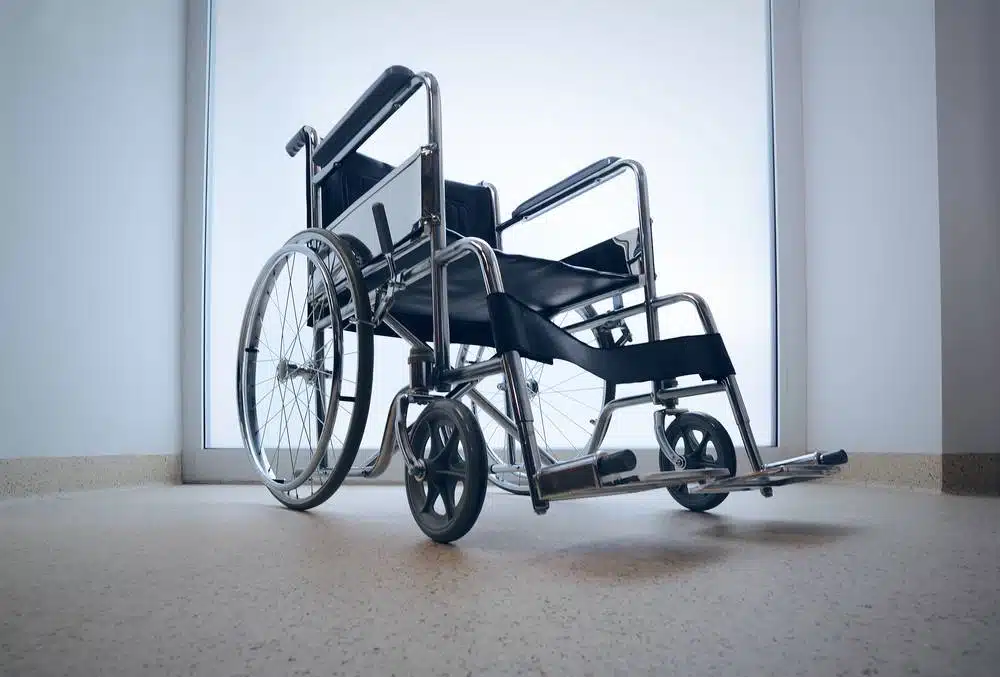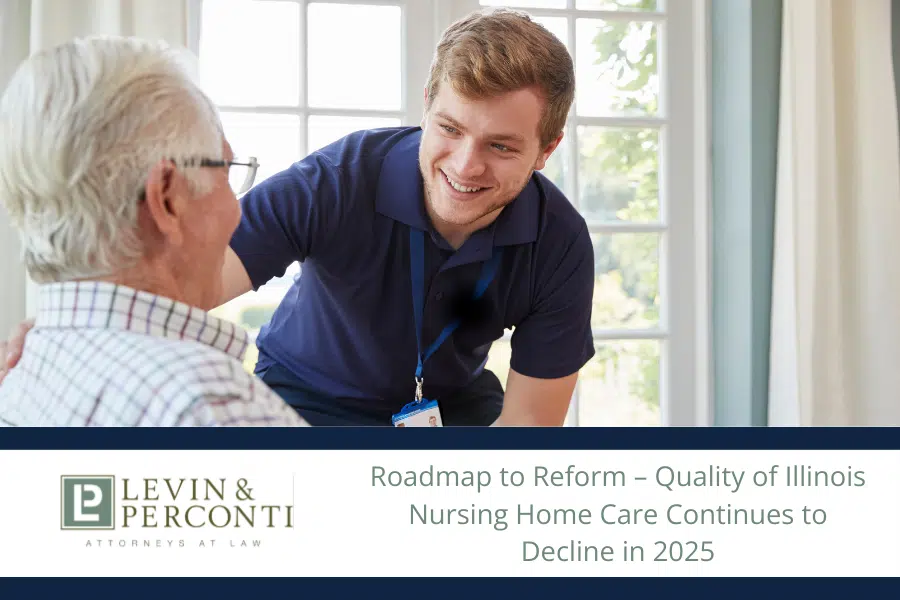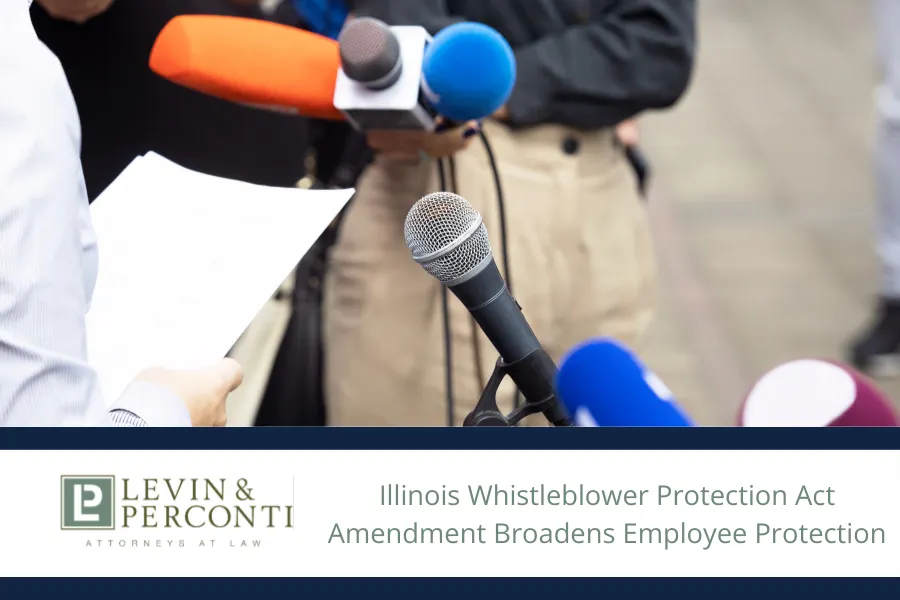
Content Reviewed by:
Steven M Levin
Content Reviewed by: Steven M Levin
Accordion Content
Since 1976, Steve Levin has been dedicated to helping people injured by others’ negligence. He is one of the first attorneys in the U.S. to prosecute nursing homes for abuse and negligence. He’s also helped write new legislation that governs the operation of nursing homes, including the Illinois Nursing Home Care Act. Moreover, Levin & Perconti has obtained the top three jury verdicts in nursing home negligence cases in Illinois.
Nursing Home Resident Evictions Continue Due to Medicaid Funding
Nationally, long-term care ombudsmen, who advocate for elderly and disabled residents of nursing homes and assisted living facilities, received 10,610 complaints about discharges and transfers in 2017, up from 9,192 in 2015. Many of these complaints arise when a facility asks or pressures a resident to leave with “no due process rights, no notice” even though an advanced notice is required.
We agree with the importance of the recent news report by NBC launched over the Thanksgiving holiday weekend, that some nursing home facilities illegally evict residents when their Medicaid funding runs short and replace them with short-stay Medicare residents. Still, unfortunately, skilled nursing facilities that discharge residents improperly isn’t anything new to us at Levin & Perconti. The Centers for Medicare & Medicaid Services (CMS) estimates, “as many as one-third of all residents in long-term care facilities are involuntarily discharged.” We have been sharing concerns and representing families on this issue for some time.
- Residents cannot be evicted for nonpayment while they are in the process of applying for Medicaid or appealing a Medicaid denial.
- Illinois ombudsmen included, receive more resident complaints about discharges and transfers than any other grievance.
- A resident must receive a thirty-day notice of transfer or discharge, which provides for the reason, effective date, and location to which the resident is transferred or discharged.
- Illinois has 1,200+ long-term-care facilities, most of which were identified by AARP for having higher than average discharge and nursing home wrongful eviction rates.
- Nursing home administrators often blame other reasons for eviction or release, but it remains known it is likely because Medicaid reimbursements have not been received.
- Medicaid is the primary source of funding for 6 out of 10 nursing home residents, and the program is the largest single payer of nursing home care in this country.
- Currently, there are more than three million Illinois residents enrolled in the state’s Medical Assistance (Medicaid) program.
Nursing home patients have additional rights, benefits, or privileges guaranteed by law because of their residence in a care facility.
Turning Response into Action
David Gifford, MD, MPH, senior vice president of quality and regulatory affairs at the American Health Care Association (AHCA), reacted to the NBC news report by saying, “Skilled nursing centers aim to provide quality care for all patients and residents. The truth is that involuntary discharges are rare. This article primarily reports on examples of short-stay rehabilitation patients being discharged once their Medicare benefit expires. There are limits to Medicare coverage and in many cases, those limits may be unclear or confusing to patients.”
He continued, “Skilled nursing centers operate within a strict framework of federal and state regulations, some of which guide discharges to a hospital or other healthcare setting. We will continue to educate our members and provide feedback to CMS on proper discharging procedures to keep everyone safe.”
We look forward to seeing that ‘strict framework’ set into motion, so nursing homes will no longer be allowed to get away with evicting innocent and vulnerable residents and facing little if any, consequences.
Resident Eviction Should Never Be Unknowing
CMS has an updated list of rules and nursing home regulations for discharging a resident, but many residents and their families remain unaware of their rights. As a reminder, here are the guidelines and stringent conditions for involuntary resident discharge:
- The facility cannot meet the resident’s needs
- The resident no longer needs nursing facility services
- The resident’s presence endangers the safety of others in the facility
- The resident’s presence endangers the health of others in the facility
- The resident has failed to pay
- The facility is closing
If you find out that the long-term care facility responsible for your family member’s care will be transferring your loved one or discharging them, it should not come as a surprise. As noted earlier, facilities which receive Medicare or Medicaid must give 30 days’ notice and all others 21 days’ notice. The notice requires the facility leaders to discuss plans of an eviction and must:
- Notify the resident and, “if known, an immediate family member of the resident or legal representative.”
- Be written in a language that resident and/or representative will understand.
The content of the notice should include:
- Reason
- Date of proposed transfer/discharge
- Location to where the resident is to be moved
- Right to appeal
- Contact information for the Illinois LTC Ombudsman programsuch as name, address, and telephone number
The facility must also provide sufficient preparation and orientation to residents to ensure safe and orderly transfer or discharge and have a post-discharge plan of care that was developed with the participation of the resident and his or her family. This will assist the resident in adjusting to his or her new living environment.
Currently,17 regional long-term care Ombudsmen, dozens of volunteers, and accompanying provider agencies support the state of Illinois and work to uncover the more complex and challenging issues plaguing nursing homes today such as wrongful eviction. The Illinois Ombudsman Program was mandated under the Federal Older Americans Act and the Illinois Act on Aging. And while Ombudsmen can play a significant role in advocating for those who are in nursing homes, some situations in violation of those Acts will require the attention of an experienced attorney.
Appealing A Nursing Home Eviction or Involuntary Transfer
If you or a loved one suffered serious injury or death as a result of an improperly handled eviction, please let the Illinois nursing home abuse and neglect attorneys of Levin and Perconti review the facts of your situation and advise you of any legal remedies available.
Our consultations are always free, confidential, and handled by one of our skilled attorneys. Call us toll-free at 1-877-374-1417 or 312-332-2872 to start a conversation.



